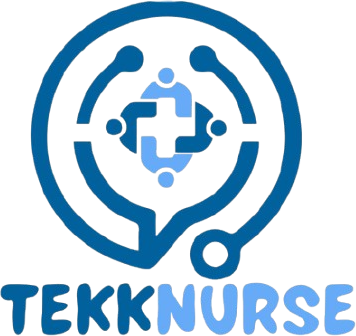Chronic Care Management (CCM)
Empowering better chronic condition care through CMS-supported services
WHAT IS CHRONIC CARE MANAGEMENT?
Chronic diseases such as diabetes, hypertension, cardiovascular disease, and asthma are among the leading causes of death and disability worldwide largely attributing to aging population, sedentary lifestyle, poor dietary habits and other risk factors. These conditions require ongoing, proactive management and care to prevent complications, frequent hospitalizations and improve quality of life. In response to this growing healthcare challenge, the Centers for Medicare & Medicaid Services created the Chronic Care Management (CCM) Program that is billable to provide comprehensive care for patients with two or more chronic conditions.
WHO IS ELIGIBLE FOR CCM?
Medicare Part B patients with two or more chronic conditions expected to last at least 12 months or until the death of the patient.
Examples of chronic conditions include, but aren’t limited to:
- Alcohol abuse
- Alzheimer’s disease and related dementia
- Arthritis (osteoarthritis and rheumatoid)
- Asthma
- Atrial fibrillation
- Autism spectrum disorders
- Cancer (breast, colorectal, lung, and prostate)
- Cardiovascular disease
- Chronic kidney disease
- Chronic obstructive pulmonary disease (COPD)
- Depression
- Alcohol abuse
- Alzheimer’s disease and related dementia
- Arthritis (osteoarthritis and rheumatoid)
- Asthma
- Atrial fibrillation
- Autism spectrum disorders
- Cancer (breast, colorectal, lung, and prostate)
- Cardiovascular disease
- Chronic kidney disease
- Chronic obstructive pulmonary disease (COPD)
- Depression
BENEFITS OF CARE MANAGEMENT FOR PATIENTS
Improved Health Outcomes
Enhanced Access to Care
Care Coordination
Medication Management
Cost Savings
Enhanced Patient Experience
HOW DOES CCM BENEFIT YOUR PRACTICE?

Maximizing Clinical Efficiency
CCM allows you and your offices branding to engage remotely and serve a larger volume of patients. It enhances the flow of care, improve patients adherence, provides early interventions, increases patient satisfaction and reduces readmission.
Improving patient engagement and customer satisfaction
By facilitating regular, proactive communication, personalized care plans, and empowering patients to take an active role in their health. It Enhances patient experience because they feel heard and understood and feel in control of their personal health.
Decreased provider workload
As it improves care coordination, reduces redundant tasks, leverages technology to improve care delivery, and increases productivity of core staff with no added workload or even less workload than usual after increased care efficiency and coordination.
Improving patient engagement and customer satisfaction
Helps to generate new revenue streams with increased reimbursement, no start-up costs.

TEKKNURSE'S ROLE IN OPTIMIZING CARE DELIVERY
- We handle patient outreach, enrollment, and retention efforts.
- Provide 24/7 clinician communication for patients and offer logistical assistance like appointment scheduling, medication reconciliation and refills, and transportation.
- Collaborate with and update other providers
- Ensure adherence to CMS guidelines and regulations, including those for Medicare chronic care management billing.
- Maintaining quality assurance and reporting, including regular reports on patient interactions, time spent on care, and patient status.
- Help to improve quality scores for programs like MIPS (Merit-based Incentive Payment System) by closing care gaps.
HOW DO WE GET STARTED?
Identify Medicare Part B patients with two or more chronic conditions expected to last at least 12 months or until the death of the patient.
Prioritize patients at highest risk of hospitalization or have recently been/are regularly seen in the emergency room.
Start with patients that regularly call into the clinic to manage symptoms or with medical questions.
Identify patients that may be most likely to benefit from care management based on the number of specialists involved in their care or who have limited social or local family support.
Identify patients dually eligible for traditional Medicare and Medicaid (not managed Medicaid)
Obtaining the patient’s verbal or written agreement to receive CCM services after informing them of applicable cost sharing, that they can stop receiving CCM services at any time, and acknowledgment that only one practitioner (and/or hospital) can provide CCM services for them in a calendar month. Patient consent must be documented in the patient’s medical record.
Establishing, implementing, revising or monitoring an electronic “Comprehensive Care Plan” for the patient that tracks their health issues, and sharing it with the patient, or their caregiver when appropriate. For complex CCM, the care plan must be established or substantially revised. Share the plan with their other health care providers as appropriate.
Providing continuity of care for patients through a designated care team member with whom the patient can schedule appointments and who is regularly in touch with the patient to help them manage their chronic conditions.
Recording certain data through certified Electronic Health Records (EHRs), including: patient’s demographics, medical problems, medications, and medication allergies.
Providing patients with a way to contact your practice at any time to address urgent care management needs
Produce at least 20 minutes of billable clinical staff time per calendar month to Medicare.

Contact Us
Let's Get in Touch
admin@tekknurse.com
